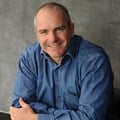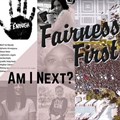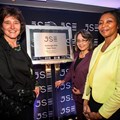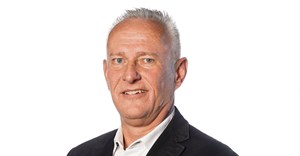Trending




 Sabre EMEA 2024 Awards: Razor PR, Retroviral top SA agenciesDanette Breitenbach
Sabre EMEA 2024 Awards: Razor PR, Retroviral top SA agenciesDanette Breitenbach
#GartnerSYM: Outgoing JSE CEO's tech and CSR insights for the future
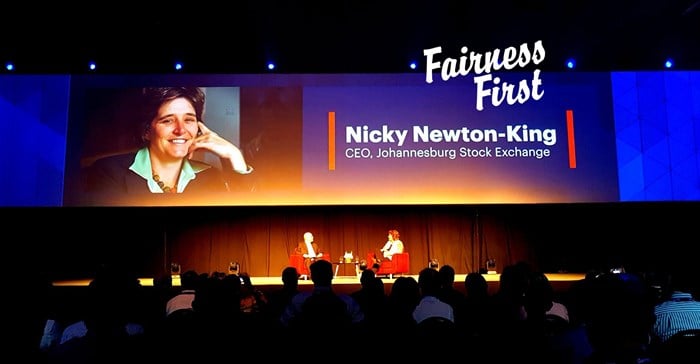
UK-based Tom Scholtz, Gartner VP analyst, research vice president and chief of research for security and risk management at Gartner led the conversation with Newton-King, who served on the board of the Johannesburg Stock Exchange (JSE) since 2005 and served as CEO since 2012.
As the largest exchange in Africa, the JSE is at the centre of African finance, but Newton-King has also brought her passion for social responsibility into the mix, as she was part of the team that developed the JSE’s Socially Responsible Investment Index – the first index of its kind globally.
On the role of tech in business, Scholtz asked about the JSE’s experience, to which Newton-King replied that the JSE is a critical part of the SA economy, with tech at the heart of that. It has to work continuously without moments of fault, as billions have been invested in it. There’s zero fault tolerance and the JSE’s core technology is seen as ‘weapons-grade’.
She also spoke of a program that was in development for eight years and had to be cancelled despite the R400m investment up to that point as it just wasn’t getting over the line. Newton-King says the JSE also took the time for some introspection into “what else in our IT real estate wasn’t world-class, including the people and regulatory standards.”
Being brave, being fast
As there has major innovation in digital transformation, most laptops don’t last more than 18 months these days. Similarly, Newton-King says we have to be brave in developing technology. Lots of tech is a hygiene factor for basic operations, but some tech is what moves your business forward faster, into new frontiers.
Newton-King admitted that the JSE is a user rather than developer of tech, but would love to be an innovator, too. She said the biggest risk in tech investment is that it takes so long to decide what you want to do, as the winds of change are so vicious, turbulent and fast.
We spend so much time, money and energy to develop, yet low-cost innovators are coming up along the sides. Taking three years to develop ‘something new’ now means you are 2.5 years too slow, and just playing catch up.
Sharing her thoughts on the impact of new technology like AI and machine learning, Newton-King says we need to be at the top end of the wave of everything. Those who are worried about the impact of robotics are missing the point.
Newton-King says to focus on getting the ordinary done right and fast so that we have more time for the extraordinary.
Giving back to truly get ahead
This does mean we need to retrain and rethink some roles, but technology is now an enabler of development, so automation is not necessarily something to fear.
Newton-King added that the biggest current challenge to South Africa is the huge ‘legacy tech’ investment, brings raises the question of how we migrate faster than we have done historically.
For employers with a large employee base, in industries where technology will disrupt, Newton-King says it’s about reskilling those employees.
To improve the current tech talent pool, she said we need to invest heavily in STEM, as well as entrepreneurial skills, and the ‘get out there and hustle’ approach.
We need to do something to create the next business. Newton-King says this is about doubling down on early-stage competence rather than waiting to solve it all amongst the grey-haired contingent.Switching focus to social responsibility and what went into establishing the indices, Newton-King says ‘the top of the Christmas tree’ shouldn’t get all the benefits of business. We extract value from society in the charges levied on clients to pay taxes, which get distributed amongst the executives in the ultimate capitalist way.
Rethinking the way we do business is at the heart of the indices.
Newton-King was applauded and cheered by attendees when she asked:
Will an extra million really benefit the top-level executive? Or would it be better distributed among the bottom-line workers who take three taxis just to reach the office? How do we expect them to perform at the best of their ability if we turn a blind eye to the horrors they face each day?We definitely need to measure our business impact on society and the environment.
More on the JSE’s Socially Responsible Investment Index
Newton-King is thrilled that the JSE was first stock exchange to do so, and it’s received lots of international kudos and thought leadership as a result, now serving as a voice that shines a light on the current context, saying: “There are different ways to do things.”
South Africa has an exceptionally high Gini coefficient, so SA businesses have to show they care – and many do. The JSE’s Socially Responsible Investment Index first started 18 years ago, and while investors have been slow to reward business for using the indices, doing so is now seen as a measure of discussion.
Newton-King says the likes of Unilever’s Paul Polman are leading the international conversation on socially responsible behaviour.
That’s not to say that the status of corporate social responsibility or CSR in SA is quite high, as it’s proven significant support to external stakeholders, especially with the state struggling to provide full services.
Newton-King said this is especially important as we move beyond the traditional transactional model to a deeper, vested investment in the true success of a business.
What true leadership skills for 2020 looks like
We still have a way to go on employee equity, but democratising ownership of what we do boosts the whole business, rather than just the few ‘haves’ at the top of the pile.
This is important and true wealth is accumulated from equity rather than the money in the bank.
That said, Newton-King admits we are only at the beginning stages on the journey on this front, and largely codependent, so will only be truly successful as businesses if we all do our bit and more.
Our wobbly economy requires us to lean in and leaders need to do what they can to help the country move on rather than just sit and wait. In this regard, the JSE has been involved in a number of marches for social equality.
Newton-King added that leadership comprises of two components.
The first is a form of ‘tea leaf-reading’, done with the team to determine where you are going and then guiding the larger whole, while the other is essentially cheerleading, so the team realises that it’s possible to do what you need to do even when times are tough.
The importance of returning to SA with different skills
Newton-King is also big on providing mentorship and lessons to those who come after us.
Her successor at the JSE is Dr Leila Fourie, graduate of the Australian Institute of Company Directors and previously an executive director of the JSE, who is returning to SA to step into the role as group chief executive officer, effective 1 October 2019.
“We are all as good as our training and experience, and should test ourselves in other spaces.” Newton-King said she is stepping down after 23 years at the JSE as staying for too long effectively means chasing out the space for others. Her heart bleeds when she sees how many are looking for experiences outside SA, as skills are needed here.
When someone does so and comes back to SA, as Fourie is doing, Newton-King says they bring with them a wealth of experience from different cultural exposures and stages of development elsewhere.
She says to make a difference to the lived experience of the country where you can. We have the space to make a lasting difference locally.
Deliver what you say you will do on time, on budget, and be brave enough to speak truth to power, as that’s the essence of leadership. If you just want to be popular, rather sell ice cream.This rounds out my coverage of the Gartner Symposium, but watch the #GartnerSYM hashtag for further updates.








